In the 1966 documentary THE ENDLESS SUMMER, director Bruce Brown follows two surfers around the world as they follow the summer season across hemispheres in search of the perfect wave. Many of us can’t begin to fathom devoting an entire year to something as elusive as a “perfect wave,” much less to an activity that would consistently yield surf rash, pruned fingers, and salt-logged eyes. It’s clear, however, that—for the same reason any of us chase a thrill—the adrenaline of the pipe and its possibilities are too great for these surfers not to follow. In the end, Brown suggests that, “With enough time and enough money, you could spend the rest of your life following the summer around the world.” An endless summer is not simply hanging loose with the boys, but rather an infinite opportunity to pursue the high of nose-riding the crest of a wave.
When we imagine an ideal place—for Bruce Brown, a place with “warm water and waves without the summer crowds of Southern California”—how do we begin to construct something that may exist impossibly? Achievable perfection seems like an idea reserved only for Platonic musings and science-fiction. Nevertheless, we consider what perfection could be, what utopia could be like, and chase it with the intention of getting as close to it as we possibly can. One of the most committed artists to this exercise is Lana Del Rey.
Her detractors will criticize Del Rey and her enterprise for being “inauthentic.” But can we keep challenging her authenticity when she’s spent the last decade crafting an atmosphere and persona that has amassed an enormous following of sympathetic young people who have a preoccupation with flower crowns and the 27 Club? Clearly the Lana Del Rey aesthetic strikes a chord, and continues to do so even across the 10-year span of her activity thus far. However, like all things, the mythos has evolved, and over time is congealing into the thing that Del Rey has been searching for this entire time: an endless summer.
—
Many things are consistent across Lana Del Rey’s endless summer—top shelf liquors, soft ice cream, party dresses, pale moonlight, old school rock, bad boys—but one of the most striking recurring symbols in her vision comes in the shape of California, a curious emblem for a woman who came of age in upstate New York.
While indie music in the early decade often involved reconciling the deterioration of pleasure and security amidst post-2008 disaffection (Arcade Fire’s THE SUBURBS, M.I.A.’s MAYA, Gorillaz’s PLASTIC BEACH, et al.), her debut LANA DEL RAY A.K.A. LIZZY GRANT looked the opposite direction, wrapping her fingers ever-tighter around fantasies that involved the idea that there’s something better out there. Still living in New York and vacationing often in Miami, her debut alluded to wide-open spaces and glittering objects—cameras, neon lights, sparkly jump ropes. Tracks like “Queen of the Gas Station” and “Yayo” make references to Utah and Nevada, vacant landscapes where she could be free to ride motorcycles into the desert with her cocaine-slinging boyfriend. While the low-budget production leaned towards psychedelic pop and indietronica, she made some subtle nods toward heartland and alternative rock. Del Rey didn’t know exactly where her paradise might be, but she knew it was somewhere with palm trees.
And then, the “Video Games” music video happened. Music publications went crazy questioning her guise as a possible industry plant, while Tumblr. girls and gays convened over copies of Leaves of Grass and built shrines for James Dean and Elvis Presley in Del Rey’s name. Although the song itself only possibly references the St. Vincent de Paul church in Los Angeles, the music video—made at home by the artist herself—clipped together nostalgic images of bathers jumping into pools, stars on the Walk of Fame, and sepia-tone footage of the Hollywood sign, among other things. Built here was the clearest foundation of the sad girl habitat.
An all-too-significant landmark for Del Rey’s budding persona at this time became the shot of an American flag billowing in the wind; in 2020, this means something much different, but given the context of the video and the 2012 release of BORN TO DIE on which the song appeared, the flag image invited an idea of freedom and spontaneity to mind. Over the years, this became an increasingly notable cornerstone of her brand, essential to the visions she conceived of long drives on open roads and chasing the “American dream.” Most obviously, the “National Anthem” music video featured Del Rey and A$AP Rocky as Jackie Onassis and John F. Kennedy in a starry-eyed love affair—though note in this portrayal its depiction of a besotted young mother and her powerful black husband dressed in ‘60s regalia playing with their beautiful interracial children, and also enjoying the lavish, carefree sailboat rides and parties that would be afforded to a handsome presidential couple. Del Rey’s American dream was untraditional from the start,
California in particular representing a mysterious and romantic escape, a destination just ahead of her on that long stretch of road.
—
The sonic aesthetic on BORN TO DIE was influential on its own, but as a sophomore piece to the later-redacted LANA DEL RAY A.K.A. LIZZY GRANT, the former record shows a significant pivot in style. The glamorous, lusty string arrangements of baroque pop illustrate the fanciful summer she’s looking for, while trip hop beats and half-rapped lyrics underscore her otherwise difficult endeavor. The title track, which opens the album, pointed her eyes to a “finish line,” running towards something instead of away, whether it kills her or not. She plays with fire, “[cruises] down the coast, going ‘bout 99” (“Summertime Sadness”), chases her drinks with Bacardi (“Off to the Races”), and deals in tormented passion with nefarious men (“Million Dollar Man”). She’s operating under the presumption, of course, that death awaits her. Hedonism and dangerous romps are performed in the name of love, and whether it turns out badly or not, it’s still better than wherever she was before.
BORN TO DIE came upon Del Rey’s then-recent arrival to California itself, riding on the excitement of finally moving to a place she likely used to dream about from that trailer park in New Jersey. But newfound celebrity, widespread criticism online, and a new, strange—and in her mind, highly idealized—home across the country could not be an easy beast to tame. ULTRAVIOLENCE very well may have been the escalation of Del Rey’s darkest impulses suggested in her previous work. All you have to do is look at the track titles, which have all the makings of a good drama: “Ultraviolence,” “Money Power Glory,” “Fucked My Way To The Top,” “Florida Kilos.” Here, she’s in the throes of bad romance with her lover and, by association, with California. The album’s tonal shift is perhaps best represented by the track “West Coast.” The bluesy, narcotic guitar swings slower yet at the chorus where the drums beat in half-time, and in her boozy croon, Del Rey laments the seductive pull of this toxic relationship—the literal one with her junkie boyfriend and the figurative one with her first love, California. She can’t help coming back to it—chasing the perfect wave, the thrill of the barrel closing in overhead.
If BORN TO DIE was denial, ULTRAVIOLENCE was anger and bargaining. Yet, the album closer, “Old Money,” plays in the cinematic, hopeful style of the former record, the difference now being the harsh reality of her broken paradise. She looks again to LA and the American flag for comfort—“blue hydrangea . . . white sunshine . . . red racing cars / Sunset and Vine.” She clings even still to the same symbols and motives. She need not look elsewhere—she need only to look with a different perspective.
There is an interlude on Del Rey’s following record, HONEYMOON, in which she reads a passage from the T.S. Eliot poem “Burnt Norton.” Her voice echoes like through an old telephone floating through space:
If all time is eternally present
All time is unredeemable
What might have been is an abstraction
Remaining a perpetual possibility
. . .
Footfalls echo in the memory
Down the passage which we did not take
Towards the door we never opened
Into the rose-garden
Situated in the middle of the album, she borrows a thesis here about a lack of control over destiny, and furthermore a sense of loss as the “what-ifs” melt away in the face of predetermination. The album marks a change in Del Rey’s ego as she comes to terms with the fact that the bliss and optimism of the honeymoon phase will dissolve eventually—but much like the past, something about it lives on and carries into the future. “But Hollywood legends / Will never grow old / And all of what’s hidden / Well, it will never grow cold,” she warbles on “Terrence Loves You.” California continues to shine a beacon of light, the place where she won’t be forgotten or left behind like the shitty dudes and drugged-out binges came to make her feel. Her chase isn’t actually after material things, as BORN TO DIE might have had us think—she’s after the thrilling intoxication of desire, and it’s with this fierce instinct that she keeps her eyes on the place that best facilitates the fantasy of her endless summer. The chorus of “Freak” says of this:
Baby if you wanna leave, come to California
Be a freak like me, too
Screw your anonymity, loving me is all you need
To feel like I do
We could slow dance to rock music, kiss while we do it
Talk ‘til we both turn blue
Baby, if you wanna leave, come to California
Be a freak like me, too
California is the place that can satisfy the breadth of her passion, the place where her impulses to love, party, dance on the beach, “cruise to the blues [on] Wilshire Boulevard,” make art, be a freak—all of it can thrive in the freedom of California’s sunshine and open spaces. Without being as brooding and overlong as its predecessor, LUST FOR LIFE invites the world back in to her fantasy with even greater enthusiasm and accompaniment. Hell, Lana is finally smiling on the album cover! More trip-hop than baroque pop, LUST FOR LIFE sounds more grounded than any of her work before, having invited a menagerie of featured artists—from Playboi Carti to Stevie Nicks—to amplify the sonic aesthetics she flirted with in the past. So much of the record embodies her new outlook:
It doesn’t matter if I’m not enough
For the future or the things to come
‘Cause I’m young and in love (“Love”)
It took 13 beaches to find one empty
But finally, it’s mine
With drippin’ peaches, I’m camera-ready
Almost all the time (“13 Beaches”)
Taking our dreams, turning them to things
It’s like magic, babe, isn’t life wonderful? (“Groupie Love”)
I never really noticed that I had to decide
To play someone’s game or live my own life
And now I do
I wanna move
Out of the black
Into the blue (“Get Free”)
This whole time she was outsourcing her project to carnal self-indulgences and cheap thrills. Her younger self might have done just about anything to feel pleasure, just to make her short time on Earth bearable before the inevitable nail in the coffin. But the wisdom of LUST FOR LIFE declares now that the only way to get closer to Heaven is to grab onto the things that keep us alive. Music, dancing, summertime, art, women, community, freedom, love—these are the beautiful things that keep gas in the tank of the Mustang. These are the things that drive her closer to California.
Released in 2017, LUST FOR LIFE undoubtedly responds to the increasingly hostile American political landscape. But unlike so many of her peers making pseudo-woke thinkpiece albums, Del Rey latches ever-tighter onto the romantic narrative that has propelled her identity this entire time. “God Bless America – And All The Beautiful Women In It” is the metaphorical wrapping-of-arms around the dejected and insecure (including herself), swaddling not with diamonds and drugs and heart-shaped sunglasses, but with bona fide tenderness and camaraderie (and dancing, to be sure). “Even with you, I’ve got no one to lose,” she breathlessly riffs, “so you’d better believe that nobody can make me feel lonely.” Lana Del Rey’s Americanness has nothing to do with actual patriotism for the United States or obliviousness to the historic destruction and pillaging of land, people, and capital at the expense of many. She idolizes Americanness as a totem for capital-F Freedom, the liberty of self to be alive in love, in pain, and in everything between. And that, to her, is Heaven, paradise, endless summer—so to California, she clings.
—
While so much of Lana Del Rey’s brand is lambasted and parodied, most criticism of her oeuvre greatly underestimates her capacity to be cheeky. I have a hard time understanding why her authenticity is questioned when she often employs the same sardonic wit as fellow singer/songwriter, Father John Misty; Del Rey practices cynicism with the same commitment she has to her Californian ambition, and now that she’s gone through hell and back, she’s allowed to keep chasing the Golden State with the understanding that self-destruction and decay are unsustainable accessories of her project. It’s with this posturing that she released NORMAN FUCKING ROCKWELL!
If anything, NORMAN FUCKING ROCKWELL! is the denouement of our hero’s journey. The title should tell you enough, if not the first lines of the eponymous opening track: “Goddamn, man-child / You fucked me so good that I almost said ‘I love you.’” Not only could this very well be her coolest (and funniest) lyric ever, but it’s telling of her newfound realism—she’s not falling for silly games of passion anymore. “Your poetry’s bad and you blame the news / But I can’t change that, and I can’t change your mood,” she continues. In the second verse, she somehow roasts this guy with even greater affection:
Goddamn, man-child
You act like a kid even though you stand six foot two
Self-loathing poet, resident Laurel Canyon know-it-all
You talk to the walls when the party gets bored of you
But I don’t get bored, I just see it through
Why wait for the best when I could have you?
It’s almost ironic that the most genuine way Del Rey can express her endeavor is by allegorizing caricatures. In particular, NORMAN FUCKING ROCKWELL! laughs in the face of the modern American dream, which we know to be a ludicrous sedative fed to the oppressed by the ruling classes. She laughs because it’s easier to keep hope alive when you’re not married to any singular pathway to happiness. In THE ENDLESS SUMMER, Brown and his subjects go where the season goes, and as such the landscape changes with each iteration of their perceived ideal, the perfect wave. Del Rey now has this understanding—“You’re in the yard, I light the fire / And as the summer fades away / Nothing gold can stay / . . . / We’re American-made”—that her concept of California isn’t static (“Venice Bitch”). The perfect wave can only be caught if she’s willing to go with the weather.
NORMAN FUCKING ROCKWELL! is the climax of Del Rey’s self-realization. References to Southern California abound on this record, from Laurel Canyon, to Topanga, to Malibu, to Newport, to Long Beach, to a Sublime cover. And as such, it becomes a portrait of her at her most optimistic, much like the work of the idealistic American artist in reference. This isn’t the same Lana Del Rey. This is a woman who can stand up for herself (“Mariners Apartment Complex”), and a woman who can laugh it off (“The Next Best American Record”). She’s seeing the bullshit for what it is (“The greatest”), and enjoying it for what it is, too (“Fuck it I love you”). Denial and glorified suffering aren’t part of the modus operandi anymore. She’s throwing slushies at cop cars and having picnics in landfill craters while bombs drop in the distance. It’s not beautiful tragedy—it’s finding beauty despite tragedy, and being able to poke her tongue in her cheek while it happens.
It’s significant to this project that NFR! ends with the song that it does. You can’t deny the beauty of a character arc that concludes with a song titled “hope is a dangerous thing for a woman like me to have – but I have it.” Mind you, this is coming from the same girl who, around the ULTRAVIOLENCE release in 2014, told The Guardian, “I wish I was dead already.” But there’s little room to doubt sincerity in this closing track, a shy, elegiac piano ballad featuring Del Rey at her most scathingly self-critical. This is the first time we’ve ever actually heard her talk about herself with such vitriol, describing herself as “writing in blood on [her] walls” in a nightgown “like a goddamn near sociopath”—like Lady Macbeth, “a modern day woman with a weak constitution.”
We’ve never actually heard her confront herself like this, so it comes with an explanation in the middle chorus: “Shaking my ass is the only thing that’s / Got this black narcissist off my back / She couldn’t care less, and I never cared more / So there’s no more to say about that.” The will to shake her demons: this is a far cry from the noirish fatalist of the early decade, the devastating Lolita who settled on anguish as the most alluring of human experiences. But Del Rey always smelled the sweetness of the fruit she had yet to taste, lest we forget her declaration early in the canon, “The road is long, we carry on / Try to have fun in the meantime” (“Born to Die”). It was only a matter of transfiguring the symbols of her affection to make sense of spiritual awakening, mapping her endless summer. And you won’t find the perfect wave if you quit surfing.
For a person whose torture comes from the inside, and therefore shadows her no matter where she goes, it is a radical act to enjoy the things of which she’s capable. Those are the things that remind Lana Del Rey to keep fighting for goodness, the things that give her hope. Dancing, sunshine, music, beaches, long drives—if these things can cut the thick of her pain, can cross hemispheres, then certainly they open the potential of life’s beauty and happiness. Certainly, they pave the way to California.


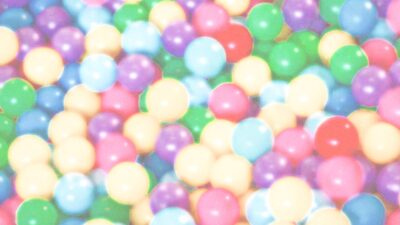
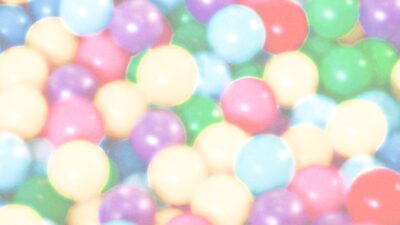
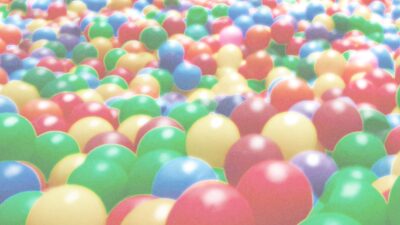
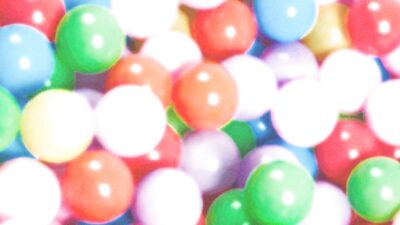

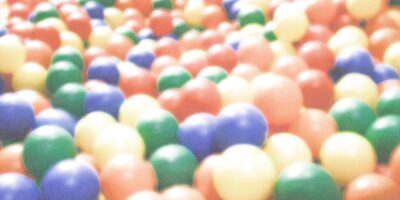
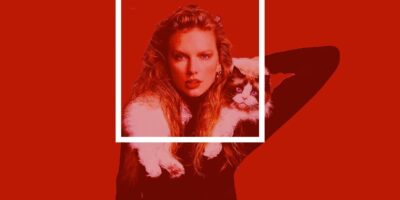

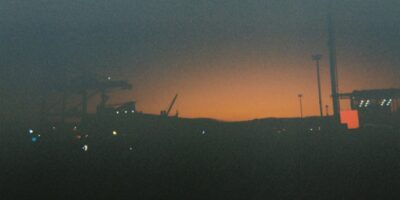

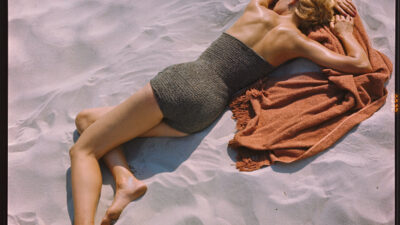


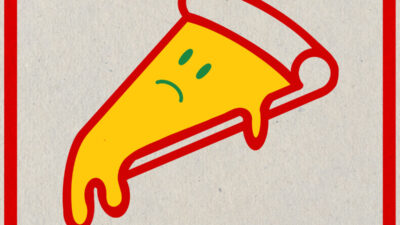
Comments